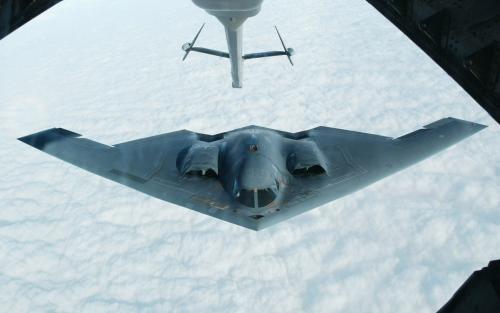

12:30 pm EDT - 2:00 pm EDT
Past Event
12:30 pm - 2:00 pm EDT
1775 Massachusetts Ave., NW
Washington, DC
Summary
The Saban Center at Brookings recently hosted a delegation of Arab intellectuals and journalists to discuss democracy promotion efforts in the Middle East. The speakers hailed from Lebanon, Syria, and the Palestinian territories, three areas that play important regional roles and are, themselves, undergoing dramatic political changes.
Background and Political Context
Amal Saad Ghorayeb of the Lebanese American University spoke about how people inside Lebanon view the democratic process. She noted that while those outside Lebanon view the elections now underway with optimism, those inside do not have much enthusiasm. Dr. Ghorayeb argued that the electoral system now in place is the same system as when Lebanon was under Syrian occupation, with the same dominant political forces in power. She noted that one political newcomer, Michel Aoun, had been sidelined by those forces. She expressed concern that sectarian politics have resurfaced in Lebanon with a vengeance in the wake of the Syrian withdrawal.
Dr. Basem Ezbidi of Birzeit University spoke about the new Palestinian leadership under Abu Mazen (Mahmoud Abbas). He noted that, both internationally and locally, there is great hope that Abu Mazen will deliver on national liberation as well as internal reform. Arafat’s absence, Dr. Ezbidi argued, has opened up several possibilities including the internal reform of Fatah and the chance for Hamas to formally participate in the political scene. However, there remains the question of how to define that participation. He noted that the ongoing power struggle within Fatah benefits Hamas, due to the general view throughout Palestinian society that Hamas is less corrupt and more disciplined than Fatah.
Ibrahim Hamidi of Al-Hayat and LBC TV discussed the situation in Syria focusing on three issues: Syrian-American relations, the role of Islamists, and the upcoming Ba’th party congress. On the issue of Syrian-American relations, he noted there is a belief in Syria that Americans want regime change by political means. He also noted a sense of frustration on the Syrian side that the Americans seem unwilling to accept any positive Syrian moves. For example, following the Syrian withdrawal from Lebanon, the United States did nothing to help Syria either in regard to the peace process or the reform process. The upcoming Ba’th party congress has given many Syrians high expectations he said, but they may be disappointed. Among the changes under discussion in Damascus, he said, were proposals to replace up to 80 percent of the old guard, to move Syria toward a market economy, and to reconsider Law 49 (which makes membership in the Muslim Brotherhood punishable by the death penalty) and the emergency law. These changes will not, however, pave way for the Islamists to enter the political fray.
The Role of Islamists
Dr. Ghorayeb argued that while the main concern outside Lebanon is disarming Hizballah, the majority of Lebanese citizens support its right to retain arms, assuming there is no regional peace. Hizballah’s priority is resistance and it will subordinate its domestic political role to its resistance role. Thus, she suggested, allowing Hizballah to remain armed paradoxically eases the group’s path to compromise with other parties on domestic issues. If the group were forced to devote itself entirely to Lebanese politics, she argued, it would dig in on major domestic issues. The key to a moderate Hizballah, she argued, is allowing Hizballah to keep its arms.
Mr. Hamidi argued that, although Syria is a secular country, it is very clear that the Islamists dominate the mosque and the street for three reasons: a high unemployment rate, the ideological vacuum, and Syria’s economic problems.
A question was raised as to whether political participation by armed groups undermines the general principle of democracy, since the state needs to have a monopoly on the use of force. Dr. Ghorayeb responded that Hizballah is not a non-state militia and has been granted legitimacy by the state. Furthermore, Hizballah has never turned its arms against Lebanese citizens, thus it is not seen as a threat to the political order. Regarding Hamas, Dr. Ezbidi noted similarly that if Hamas abandons its arms, it would lose any power it had to serve its ultimate cause—national liberation.
The Role of the United States
Dr. Ezbidi argued that many in the region are troubled by the United States’ definition of democracy and apparent double-standards in applying its policies. In the Palestinian case, he believes that the Palestinians cannot work for democracy while under occupation, as democracy exceeds elections and involves institutions only found in a sovereign state.
Dr. Ghorayeb believes that in Lebanon the United States is viewed as sincere and genuine, however the Lebanese are proud of their country as the only Arab democracy and therefore are insulted by the United States’ call for political reform.
One participant asked what the United States can do to help democracy flourish at the grassroots level. Mr. Hamidi stated that it is very risky for the United States to support civil society initiatives in Syria as these groups would be viewed as traitors for accepting U.S. support. Dr. Ezbidi elaborated by explaining that this is a question of image and perception. The societies of the Middle East generally share the conviction that the United States lacks credibility and are therefore suspicious of any U.S. initiative.

Pavel K. Baev, Robert Einhorn, Sharan Grewal, Samantha Gross, Ryan Hass, Patricia M. Kim, Elizabeth N. Saunders, Yun Sun, Caitlin Talmadge, Shibley Telhami, Andrew Yeo
July 1, 2025

Suzanne Maloney
June 22, 2025

Joshua Rovner
June 20, 2025